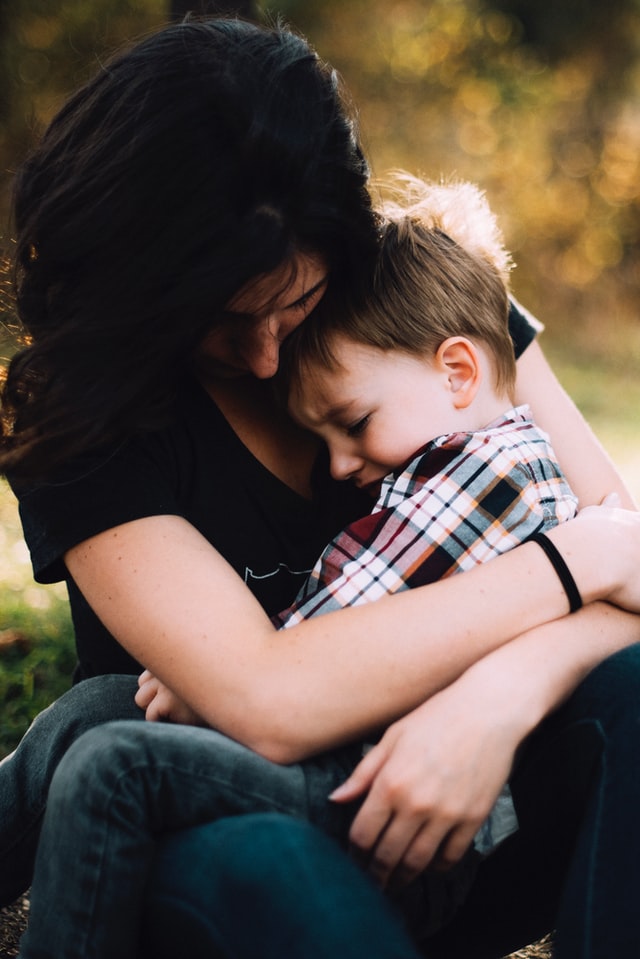Practical Strategies to Support your Children Through Separation

There are added complications to separation when children are involved and this can be one of the most difficult challenges couples face when making the decision to separate.
These added complications include deciding how they will share responsibility and time with their children, any negative impact on their children’s healthy development, and any negative impact on the parent/child relationship.
In some circumstances, the marital breakdown and subsequent separation occurs after years of conflict. At other times, it can appear sudden and unexpected, and the children find it difficult to understand. Children do not have the same capacity to understand as adults that it is not normal to experience continuous conflict, tension, and unhappiness in the home, and grow up thinking this is how life is meant to be.
The major emotions involved for children when faced with a family break up are fear, anger, and grief: fear because they know their life is about to change, but they don’t know how it is going to change; anger because the situation is beyond their control and they feel powerless; and grief because the environment and family unit they know is perishing. For children as much as adults, this is a death they must grieve over time.

Practical strategies to consider
If you are considering separation and you have children, here are some practical suggestions to consider:
- When you decide to tell your children about your decision to separate, both you and your former partner should aim to tell them together in a private setting that is free from distractions. Your children will be observing you closely, so you need to convey confidence in your decision and reassure them that everything will be alright.
- Children tend to take on the responsibility of their parents’ separation, that somehow the fault is theirs. Therefore, it is imperative that you make it clear they are not the cause of the separation, that it is you as partners who are separating, and not as mum and dad. Reassure them that you will always be their parents, you will always be there for them, and you will always love them.
- Your children will ask questions, so you need to be prepared and have some age-appropriate answers ready. They do not need to know the intricate details as to why you are separating. Think carefully about how to explain the reasons and have a simplified answer ready. Sometimes they may be too shocked to say anything. If so, you need to let them know that, if they have any questions at any point in the future, they will always have the opportunity to ask them.
- It is imperative to your children that you do not make disparaging remarks about the other parent. Children love both their parents and comprise 50 per cent of each of you. If you make disparaging remarks, they will take these remarks very personally and believe that you do not like the part of them that is like their other parent.
- It is important to maintain appropriate boundaries for your children, and for them to know they will be held accountable for their behaviour. Just because you have separated doesn’t mean they are allowed to buck the system and do whatever they please. Maintaining boundaries will help your children feel secure.
- Children thrive on having security in their lives. To reduce their levels of anxiety, explain exactly how, when and what is going to happen when you separate. Young children in particular need to know who is going to look after them, take them to school, and where their precious belongings will be. It is easy as adults to forget how important these things are to children. Reassurance and stability are what make children feel secure.
- Don’t prevent your children from having contact with their other parent in order to punish that parent. A child needs to have regular contact with both parents. The pain your children will feel due to the absence of a parent far exceeds your need for revenge.
- Sharing your fear, anxiety, or resentment with your children is not a good idea, as they are not developmentally old enough to deal with it. It can make them feel they need to look after you, which is too burdensome for them to handle.
- To help reduce the stress of living between two households, if possible, both parents should endeavour to live close to each other.
- Don’t ask your children to carry messages to your former partner, particularly messages that are disparaging or passively aggressive as, by doing so, you affect your children’s emotional wellbeing. Pass on any messages for your former partner directly.
- It is beneficial to your children to encourage them to freely discuss their lives with their other parent, as this shows that both parents are interested in their lives and activities. Also, don’t ask them to keep secrets from their other parent, as this encourages children to be secretive and become artful in manipulating facts.
- Children need to know that both you and your former partner are still interested in them as parents, so make it clear that you still discuss their achievements with each other, such as how impressed you both were about their school report, or how well they played at their last sporting event. When children know they are being talked about by the two most important people in their lives, this helps them to accept their new circumstances and also builds their confidence and self-esteem.
- Support your children in keeping up their friendships and to continue to participate in any school or extra-curricular activities they undertake. To the best of your ability, help them to remain children with only innocent concerns.
- It is essential not to communicate adult issues to your children. They don’t need to know if you are struggling financially, if you are stressed out, or are experiencing problems with their other parent. Talk to another adult about adult things.
- Regardless of whether you agree or not with the other parent’s parenting style, do not argue about this when your children are present. Children need to see you both as a united front. You may find it difficult, but, despite the fact you are no longer together as a couple, it is possible to show respect for each other’s principles and opinions.
Remember: your children’s needs come first. As long as they are safe, they need, and are entitled to have, a relationship with both their parents. Separation unquestionably affects children, but, with guidance, support, and co-operative parenting, your children can move through the process feeling nurtured and content. Experts agree that living as a happy, separated family is less traumatic for children than living in an environment where both parents are continually at war with each other. In all matters involving your children, the continuing nature of the relationship with both their parents and the benefits that co-operation between them brings cannot be over-emphasised.
Extract from “The Divorce Navigator: How to save tears, time and money”
Richelle Hampton
Divorce Navigation
www.divorcenavigation.com.au
Biography: Richelle Hampton.
Richelle Hampton lives with her three children on Sydney’s Northern Beaches in New South Wales. Primarily her role has been raising her children and practicing as an accountant on a part-time basis until she set up Divorce Navigation in 2011.
Richelle has now launched her first book designed to help others ending significant relationships from a practical point of view in light of the knowledge she has accumulated over 28 years as a practising accountant.
She is currently completing a Bachelor Degree in Applied Social Science and is planning a further two books to add to the stable of knowledge she first uncovered before she wrote her first book.










